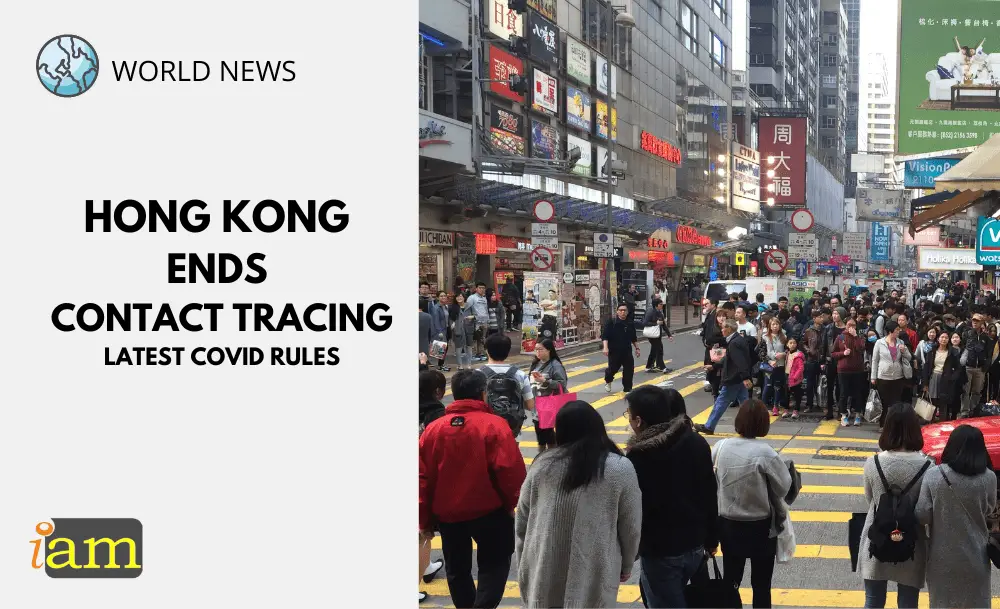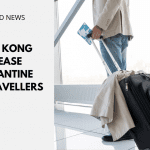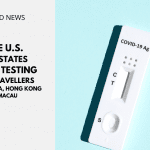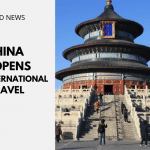Hong Kong Ends Contact Tracing

After more than two years of strict pandemic rules, arrivals to Hong Kong will be allowed to move around the city freely if they test negative for coronavirus.
Hong Kong has announced it will scrap some remaining restrictions on travellers and end contact tracing after Beijing shifted away from its rigid zero-Covid stance. Previously, travellers have been subject to a three-day post-arrival ban from public venues.
The new rule will take effect on 14 December 2022.
City’s chief executive, John Lee, stated that one reason for easing restrictions was that the infection risk to the local community posed by imported cases was now lower.
Health Secretary Lo Chung-mau told a news conference on 13 December that travellers arriving in the city would no longer be issued an “amber code” barring them from entering restaurants and bars during their first three days.
He also confirmed the end of a requirement to scan a government health app to enter public venues but said a vaccine pass would still be needed to enter venues including restaurants.
“We have to consider measures that will help to revive our economic and social activities, ”
Health Secretary Lo Chung-mau
The city scrapped mandatory hotel quarantine in September.
Travel from Hong Kong to Macao and mainland China will also be eased to “keep in line with mainland China’s policy,” Lo said.
The strict coronavirus rules have undermined Hong Kong’s role as a regional aviation hub and also triggered a brain drain, as scores of talented people looked for alternative global hubs such as Singapore or Dubai.
Rules For International Arrivals
All international travellers aged 12 and above must be fully vaccinated against COVID-19 to enter Hong Kong. To be considered fully vaccinated, arrivals should have two full doses of a COVID-19 vaccine at least 14 days prior to entry.
There are exceptions for those with a single dose of a recognized vaccine who recently recovered from COVID-19 and people with medical exemptions as noted by a doctor.
International travellers are still required to undergo a PCR test on arrival in Hong Kong and on the second day of their visit, plus five days of rapid antigen tests. Those testing positive must isolate.
According to a press release, vaccination requirements do not apply to transit passengers who do not pass through immigration control.
Masks also remain compulsory in all public venues, including outdoors.
For the latest information on visiting Hong Kong, check the Hong Kong government website.
China's Latest COVID-19 Travel Rules
Mainland China still has some of the strictest COVID rules in the world. However, the government has recently eased its pandemic restrictions after nationwide protests against its harsh zero-COVID policy.
People with Covid who have mild or no symptoms can now isolate at home rather than in state facilities.
Passengers on inbound flights to China will now need to show one negative PCR test taken within 48 hours before boarding. Previously, passengers needed to provide two negative PCR tests.
International arrivals now need to quarantine for eight days instead of ten, while officials will no longer record secondary contacts for tracing which will allow many to avoid quarantine.
What are your thoughts on this issue? Talk to us in the comment section below. Or if you need more advice on the above, contact us for further travel & immigration advice.
Check out the deals we have found below and tell us your travel plans.
Check out the offers and discounts from:
And because of the pandemic, don’t forget to get your travel insurance, which will cover you for flight disruptions and pandemic related matters.
IaM can help with your visa application to Europe, the United States, the UK & other countries
If you need help with a US visa, a UK Visa, or a visa to Europe, including help with appointment booking obligations, IaM can help. For more information and advice on US immigration, UK immigration law and US visa applications or if you need any help or assistance please, reach out to your Visa Coordinator at IaM.
Some of our posts include affiliate links. If you choose to purchase any of these products, we might get a small commission. For more information, check out our TOS.









